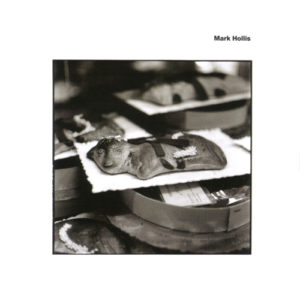Mark Hollis – Mark Hollis Polydor 537 688-2 (1998)
After the artistic triumphs (and commercial failures) of Spirit of Eden and Laughing Stock, Talk Talk disbanded. Many years later singer Mark Hollis released his first, and to date only, solo album, the self-titled Mark Hollis. This picks up exactly where Talk Talk left off, and it almost sounds like a very high fidelity demo for an unrealized Talk Talk album (that isn’t meant as a put down, rather to say these are more stripped down recordings). The songs are moody and nearly ambient. Yet, they are slightly more like distinct songs than on the last Talk Talk albums. More importantly, the performances are simpler, performed in a chamber setting with minimalist arrangements that give the impression of being performed live in the studio. The last two Talk Talk albums instead had (obviously) layered sounds assembled in the studio from bits and pieces of expansive recording sessions. And yet Hollis was quoted as saying, “This material isn’t suited to play live.” The opening “The Colour of Spring” is so sparse that only one or two instruments play at an given time. Hollis sings with his iconic delicate, high voice that almost seems frail and hollow if it didn’t also come across as so resilient and erudite. Five of the songs were co-written by producer Warne Livesey, and Phil Ramacon and Dominic Miler co-wrote other songs. Only one song was written solely by Hollis. There are many nods to mid-century classic jazz and Euro-classical music, albeit merely outlined as impressionistic thumbnail sketches. There is also a pervasive interest in perseverance and purity evinced by the songs. The performances are melancholic, with a cautiously hopeful urban twist on pastoralism; though the music is much more optimistic and tranquil than Laughing Stock. Anyone who fell in love with the late period Talk Talk recordings will definitely want to seek this out. Hollis largely retired from music after this album, so it is likely to be the last of its kind. That is too bad, really, because the world could use more music with this integrity.

